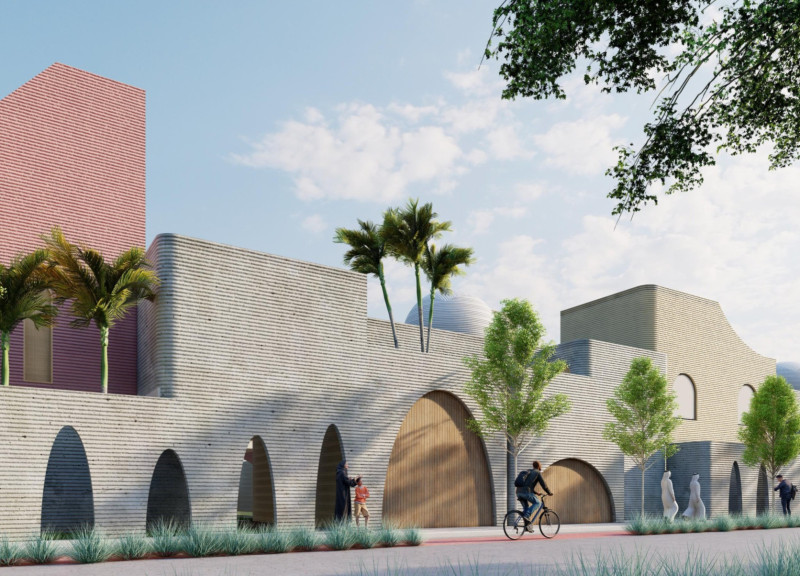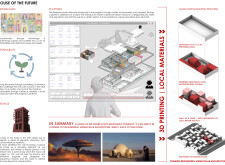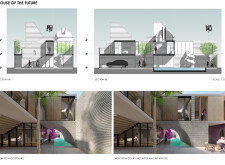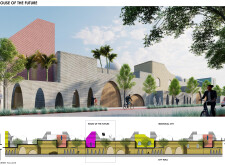5 key facts about this project
## House of the Future: Overview and Key Themes
Located in the United Arab Emirates, the House of the Future is an architectural endeavor that merges contemporary design with cultural heritage while prioritizing sustainability. The project explores themes of individualism, sustainability, and heritage, challenging traditional residential architecture in the region. With a focus on advanced technology, particularly artificial intelligence (AI), it offers users the opportunity to tailor their living spaces to reflect personal preferences and lifestyles.
### Spatial Strategy and User Customization
The design facilitates personalization through an AI-assisted platform, enabling homeowners to adjust spatial configurations according to their individual needs. This approach promotes a diverse range of living scenarios, allowing inhabitants to design environments that resonate with their values. Each unit incorporates a series of flexible and dynamic spatial arrangements, such as adaptable walls that can shift between privacy and openness, thereby enhancing user experience while maintaining an integrated aesthetic across the community.
### Sustainable Materiality and Environmental Considerations
Materials have been meticulously selected for their aesthetic, functional, and ecological properties. The use of 3D printed concrete and local clay bricks supports traditional building techniques while optimizing resource efficiency. Large glass openings enhance natural light and foster connections with the surrounding environment. The project emphasizes energy efficiency, natural ventilation, and climate-responsive design strategies, encouraging residents to engage actively in minimizing their environmental impact. The integration of shared spaces within the layout further promotes social interaction while honoring individuality through thoughtful design.






















































